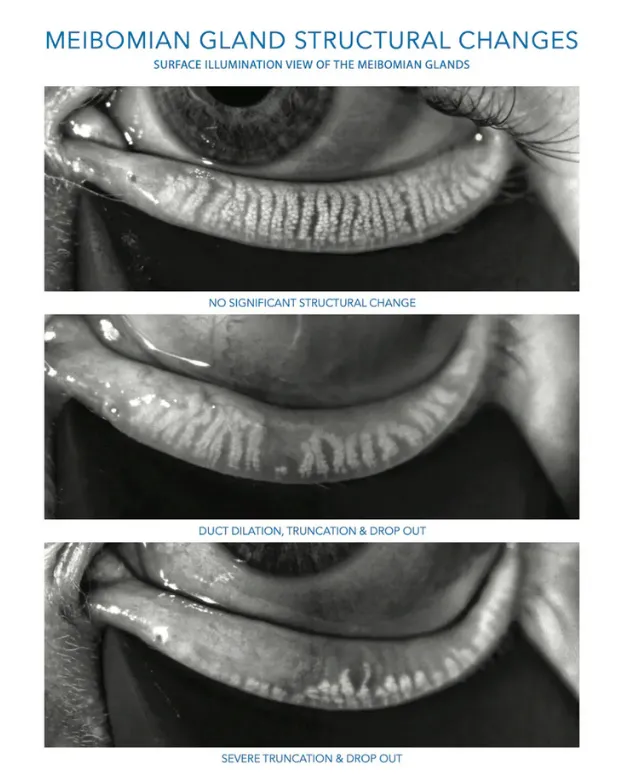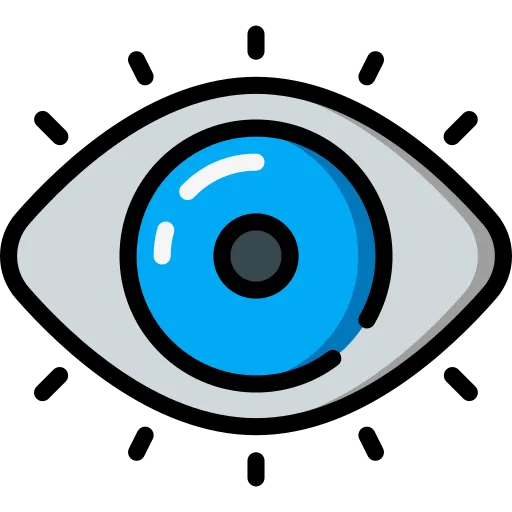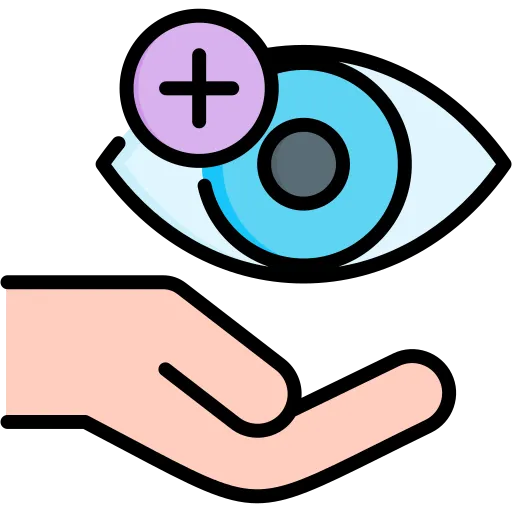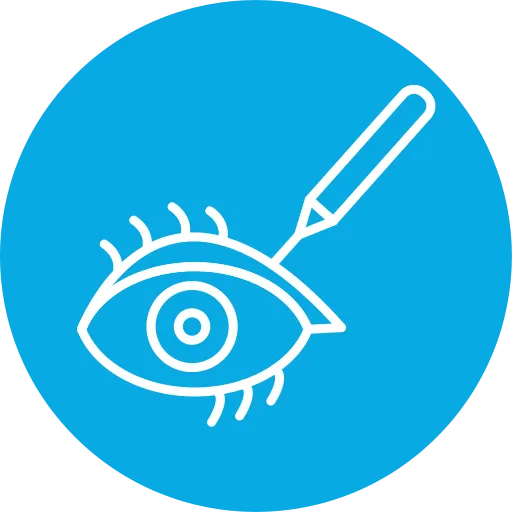Eyes Stinging or Burning All Day?
It could be Dry Eye — here’s what you need to know

16 million adults in the U.S. suffer from Dry Eye Syndrome
It’s more than discomfort — untreated Dry Eye can damage your vision.
What is Dry Eye?
Dry Eye, also known as Ocular Surface Disease, happens when your eyes don’t produce enough tears — or when the tears they do produce aren't effective. A healthy tear film is essential for comfort and clear vision. It’s made up of
three key layers.
-Mucin (inner layer): Helps spread tears evenly across the eye
-Aqueous (middle layer): Provides hydration
-Lipid (outer layer): Seals in moisture and prevents evaporation
When any of these layers are disrupted — whether due to low tear production or poor tear quality — the result is dry, irritated, and uncomfortable eyes. Left untreated, this can affect your vision and overall eye health.
Why Your Eyes Feel Dry: The Hidden Role of Your Eyelid Glands
The meibomian glands located along your eyelids, are essential for keeping your eyes comfortable and well-lubricated. These tiny oil-secreting glands help create a stable tear film by preventing your tears from evaporating too quickly.
When these glands are healthy, they release just the right amount of oil to protect your eyes. But when they become blocked, damaged, or begin to atrophy oil production drops. The result? Your tears evaporate too fast — leading to dryness, irritation, stinging, and blurred vision
This condition, known as Meibomian Gland Dysfunction (MGD) is one of the leading causes of Dry Eye Syndrome.
Dry Eye can also be triggered or worsened by:
Environmental factors (dry air, wind, smoke), Aging and hormonal changes, Prolonged screen time (reduced blinking), Contact lens use, Medical conditions such as Sjögren’s syndrome

Things you need to know!

Symptoms
Dry eyes can cause discomfort, grittiness, redness, and blurred vision. Common symptoms including burning, excessive blinking, and a sensation of something in the eye.

Preventive Measures
To reduce the risk of dry eyes, maintain a healthy diet rich in omega-3 fatty acids, stay hydrated, and practice good eye hygiene.

When to seek help
Contact us at Eyes Now If you experience persistent discomfort, worsening symptoms, or vision changes.
Available Treatments:

Eye Drops
Fast-acting, soothing liquid drops that provide temporary relief by lubricating dry, irritated eyes to keep your eyes hydrated.
(available to purchase in clinic)

Punctal Plugs
Tiny inserts placed in the tear ducts to help retain natural tears on the eye surface longer to help the eye retain extra moisture.
(in clinic procedure)

Omega-3 Supplements
Nutritional support that helps improve tear quality and reduce inflammation from the inside out to strengthen your tear film.
(available to purchase in clinic)

Bruder Mask
A reusable, heated eye mask that loosens clogged oil glands and boosts natural tear production.
(available to purchase in clinic)

MiboFlo
A gentle, in-office thermal therapy that clears blocked meibomian glands for long-lasting dry eye relief.
(in clinic procedure)

Amniotic Membrane
A healing eye treatment using amniotic membranes gently placed on the eye to repair the eye surface and reduce severe inflammation.
(in clinic procedure)

Zest
In-office treatment on your eyelids and eyelashes to help clean up debris, bacteria, and parasite growth that cause dry eyes.
(in clinic procedure)
An advanced approach to eyelid care—learn about ZEST Treatment.
A soothing, heat-based therapy that treats dry eyes at the source - MiboFlo Treatment.
At Eyes Now, we believe life is meant to be seen in full clarity. Cataracts don’t have to hold you back, our advanced cataract care and personalized lens options are designed to restore sharp, vibrant vision so you can get back to enjoying the moments that matter most. From expert care to the latest technology, we’re here to guide you every step of the way toward a clearer tomorrow.
Book an appointment now to learn more about your dry eye treatment options.
Office: 8687 North Central Expressway #2332 Dallas, Texas 75225
Call +1 469-202-5167
Email: [email protected]
Site: www.eyesnow.us
